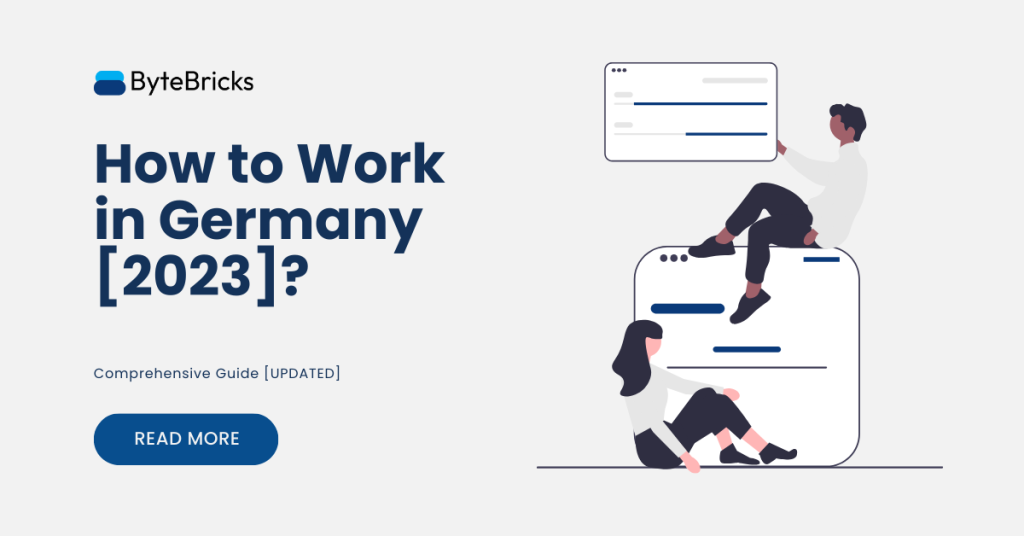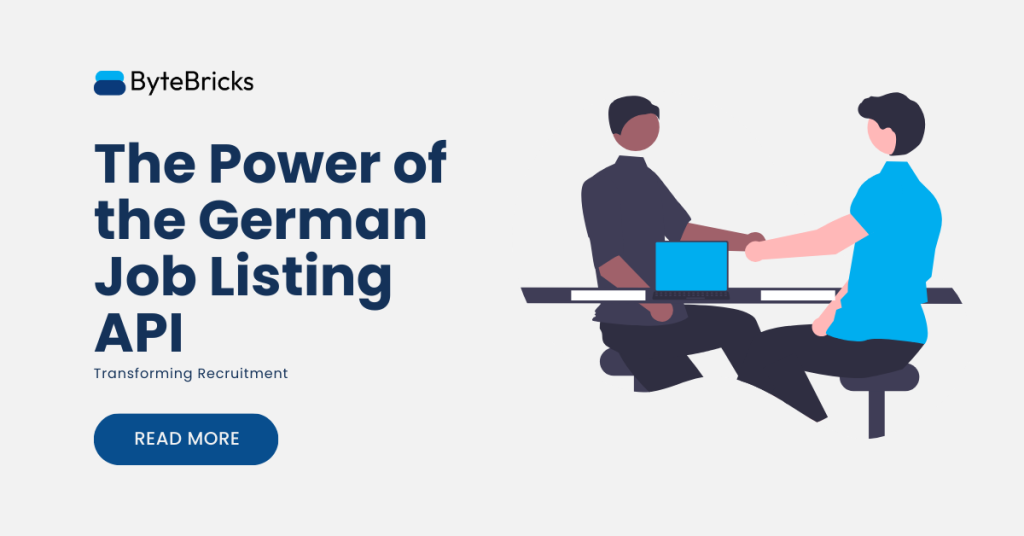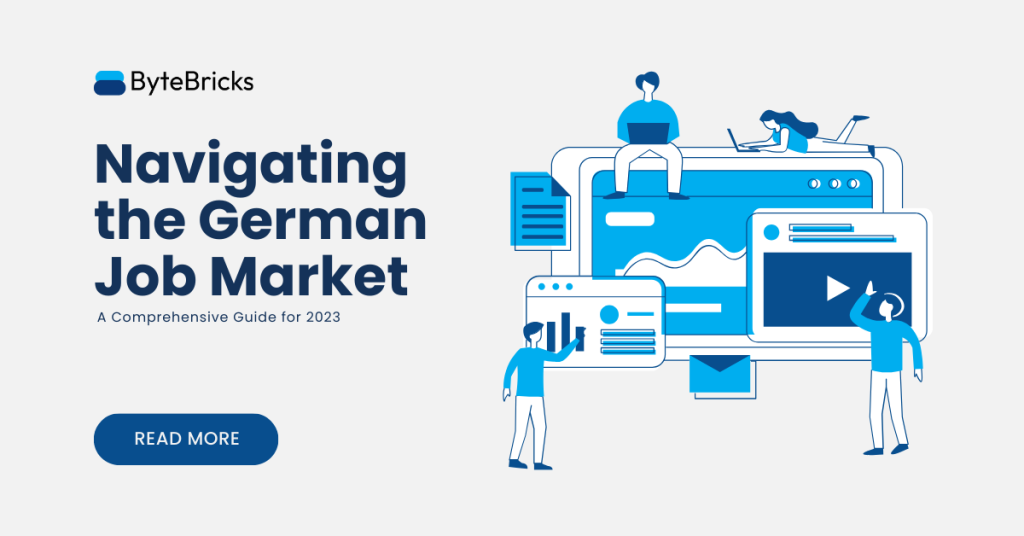Introduction: Why Work in Germany?
Germany
Germany, a nation with a robust economy and a rich cultural tapestry, presents a lucrative platform for individuals eyeing international work experiences. When you consider the prospects to work in Germany, you’re not merely looking at a job opportunity, but a chance to immerse in a work culture known for its precision, quality, and innovation.
German job market
The German job market is a well-oiled machine, continually evolving to accommodate and capitalize on modern trends and technologies. It’s a market that values expertise, education, and experience. The country has made significant strides in integrating a diverse workforce, making work in Germany for foreigners a viable and encouraging option.
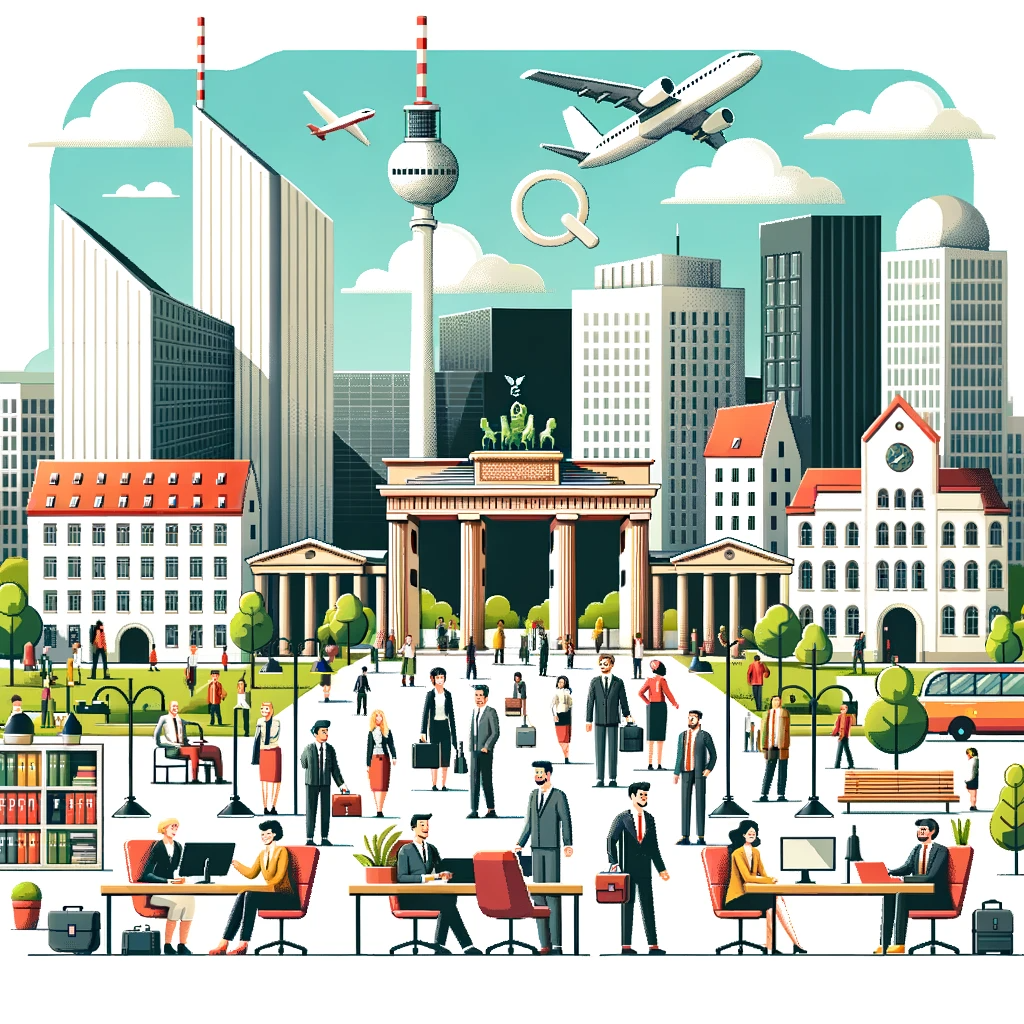
Demand
Whether you are a skilled professional, a recent graduate, or someone looking to transition into a new career field, Germany has a spectrum of opportunities waiting. One of the remarkable facets of working in Germany is the recognition and reward of skill, irrespective of one’s origin.
More Benefits
Moreover, the benefits of working in Germany extend beyond the paycheck. Employees enjoy a high standard of living, robust healthcare services, and an admirable work-life balance. The emphasis on employee well-being and professional growth creates a conducive environment for career advancement and personal development.
Navigating the Job Market: Unveiling Opportunities to Work in Germany
Germany’s job market is versatile and has a plethora of opportunities for individuals from all walks of life. Whether skilled or unskilled, speaking German or not, there are various channels through which one can find suitable employment in Germany
Skilled Professionals Work in Germany
Germany is a haven for skilled professionals. The country’s robust industrial and technological sectors constantly seek experts to drive innovation and maintain the high standard of quality synonymous with the German market. Especially, sectors like engineering, IT, and medicine are always on the lookout for skilled individuals. Furthermore, initiatives like the Make it in Germany jobs portal, ease the transition for skilled professionals from abroad, fostering a smooth integration into the German work culture.
Unskilled Jobs Work in Germany
While skilled professions are in high demand, there are also avenues for unskilled jobs in Germany for foreigners. The hospitality, retail, and logistics sectors often have openings for unskilled or semi-skilled workers. It’s advisable to have a basic understanding of German, though there are positions available that do not require German language skills.
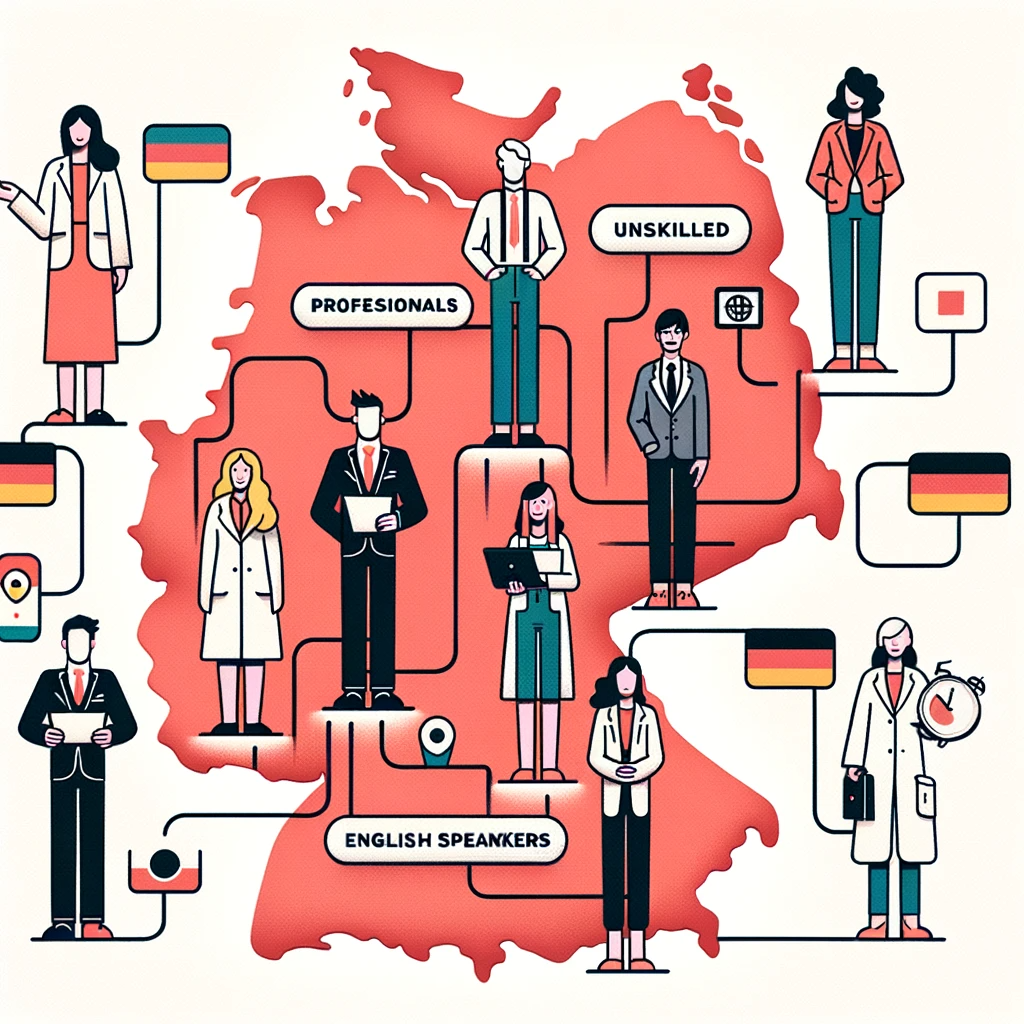
Remote Jobs to Work in Germany
The digital wave has also touched the German job market, opening up a realm of online jobs in Germany for foreigners. From digital marketing to remote IT services, the possibilities are vast. Platforms like LinkedIn and Xing are good starting points to explore online job opportunities.
Student can also Work in Germany
Germany encourages students to get practical experience, and many universities have tie-ups with companies for internships and part-time jobs. Working while studying is a great way to gain practical experience and support oneself financially.
No German?! Still you can Work in Germany
It’s a common misconception that one needs to be fluent in German to work in Germany. There are numerous opportunities, especially in multinational companies and startups, where English is the primary language of communication. Platforms like Arbeitnow are specifically designed to cater to job seekers who are not proficient in German, making work in Germany for English speakers quite accessible.
Job Searching Platforms: Your Gateway to Work in Germany
How to find a job? how to find an employer? these are the first questions that will come to your mind, right? here we layout a structure way on how to tackle these questions. The first step to start your journey to work in Germany is to navigate through the myriad job searching platforms. These platforms range from online job portals to networking sites, and physical events like job fairs, all designed to connect job seekers with potential employers. Here, we will explore some of the top job searching platforms and networking opportunities that can be your bridge to the German job market.
Top Job Searching Sites in Germany
Germany hosts a multitude of job search portals that cater to a wide range of professions and qualifications. Some notable ones include StepStone, Indeed, Bundesagentur für Arbeit, and LinkedIn, which offer a vast array of job listings. For those seeking jobs in specific sectors, platforms like Jobvector are worth exploring. Besides, the Make It in Germany jobs portal is an excellent resource for foreigners looking to work in Germany, offering job listings in both German and English. Some interesting portals like Zuhausejobs are specialized for remote jobs if you are looking for one!

As of 2023
97,292 visas were issued for the purpose of employment in Germany.
89,000 people in Germany possessed an EU Blue Card.
244,000 foreign healthcare workers were employed in Germany.
Networking Opportunities
Networking is a crucial part of job searching in any part of the world, and Germany is no different. Platforms like LinkedIn and Xing are widely used for professional networking and job searching. They provide a platform for individuals to connect with industry professionals, join professional groups, and apply for jobs. Additionally, these platforms allow job seekers to create professional profiles, making it easier for recruiters to find them.
Job Fairs and Events
Germany frequently hosts job fairs and recruitment events, providing a platform for job seekers and employers to interact face-to-face. But of course mostly limited to being in Germany while looking for the job!!
German Language: Your Stepping Stone to Work in Germany
Language proficiency is often considered a significant determinant in the pursuit to work in Germany. It not only opens up a broader spectrum of job opportunities but also helps in integrating seamlessly into the German work culture.
Importance of German Language
The primary language of communication in the German workspace is German, making it a crucial skill for anyone aiming to work in Germany. While there are jobs available for English speakers, knowing German significantly broadens your job prospects. It’s especially relevant if you’re eyeing positions in small to medium-sized companies or in regions where English isn’t as commonly spoken. Moreover, language proficiency reflects well on your resume, showcasing your commitment to adapting to the German work environment. It also plays a pivotal role in your interactions with colleagues and clients, fostering better relationships and understanding in the professional realm.

100 million people speak German as first language
and 15.4 million people are learning German around the world
German Language
The Common European Framework of Reference (CEFR) sets guidelines for learning the German language, with courses ranging from beginner (A1) to fluent levels (C2). Each level has a structured curriculum, teaching students to communicate effectively in various scenarios, from simple inquiries to discussing complex topics.
Institutions like the Goethe-Institut offer German courses globally and their certifications are widely recognized. Online resources include Deutsche Welle’s Deutschtrainer for vocabulary and pronunciation, the Goethe-Institut’s digital library for audiobooks and films, and the vhs learning portal for various levels of German.
Recognition of Foreign Qualifications: Your Entryway to Work in Germany
If you’re planning to work in Germany, having your foreign qualifications recognized is crucial. This process ensures that your academic and professional credentials are valued accurately, paving the way for a successful career in Germany. This section will delve into the aspects of recognition for regulated and non-regulated professions, the equivalence assessment, adaptation qualification, and the costs involved in the recognition procedure.
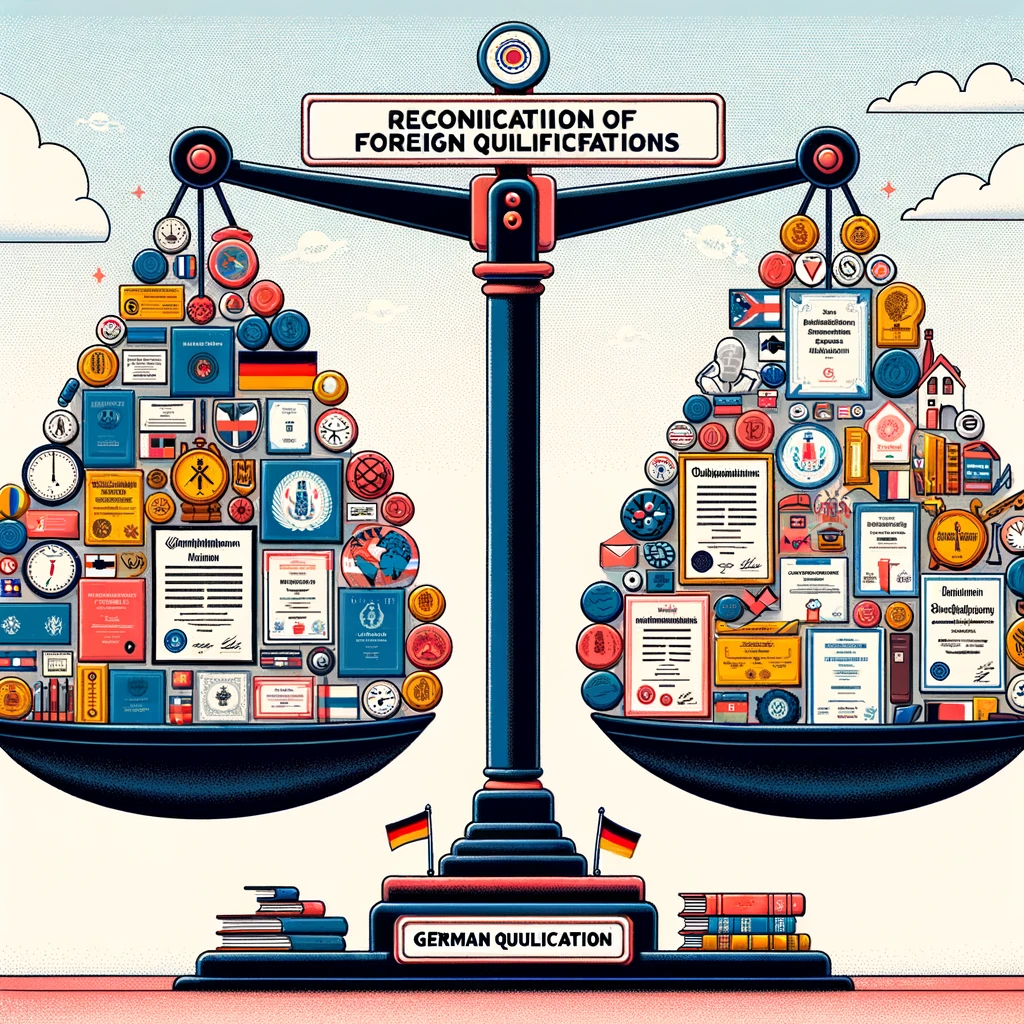
Regulated and Non-regulated Professions
In Germany, professions are categorized into regulated and non-regulated. Regulated professions, like healthcare, engineering, and teaching, require a specific recognition of your qualifications to ensure you meet the German standards. On the other hand, non-regulated professions don’t mandate such recognition, but it’s advantageous to have your qualifications assessed for better job prospects.
Equivalence Assessment
The equivalence assessment is a thorough examination to determine how your foreign qualifications compare to German standards. This assessment is vital, especially for regulated professions, to ensure that you have the requisite knowledge and skills to practice in Germany. The process involves submitting your documents to the competent German authority, which will evaluate them, usually within three to four months, to ascertain their equivalency to German qualifications.
Adaptation Qualification
If substantial differences are found during the equivalence assessment, you may need to undergo an adaptation qualification. This additional qualification helps bridge the gap between your foreign qualifications and German standards. It might involve learning job-related German or broadening your technical or theoretical knowledge. Successful completion of the adaptation qualification will lead to the full recognition of your foreign qualifications, enabling you to work in your chosen profession in Germany.
Cost of the Recognition Procedure
The recognition procedure can incur costs up to €600 or more, depending on the specifics of your case. These costs may include fees for document translation, certifications, travel expenses, and possibly fees for adaptation programmes or refresher training courses. Financial support might be available to help offset these costs.
Visa Processes to Work in Germany
Embarking on the journey to work in Germany requires a thorough understanding of the country’s visa processes. Germany offers a variety of visa options to cater to different professional backgrounds and objectives.
Types of Visa that you can use to work in germany
Germany has structured a comprehensive visa system to accommodate various professional and academic pursuits. Here are some of the visa types relevant to those seeking to work in Germany:
- Work Visa for Qualified Professionals: This visa type is designed for skilled workers and provides direct access to the German job market.
- EU Blue Card: Targeted at highly skilled non-EU citizens, the EU Blue Card not only allows you to work in Germany but also grants certain additional benefits.
- Visa for IT Professionals: With a high demand for IT expertise, this visa facilitates the entry of qualified IT professionals into the German job market.
- Visa for Jobseekers: This visa allows individuals to enter Germany to seek employment.
- Visa for Recognition of Foreign Qualifications: A necessary step for many international skilled workers to access the German job market.
- Visa for Training: If you aim to complete vocational training in Germany, this visa is for you.
- Visa for Self-Employment: Entrepreneurs from abroad can apply for this visa to establish and operate their business in Germany.
- Visa for Studying: For those intending to pursue higher education and potentially work in Germany post-graduation.
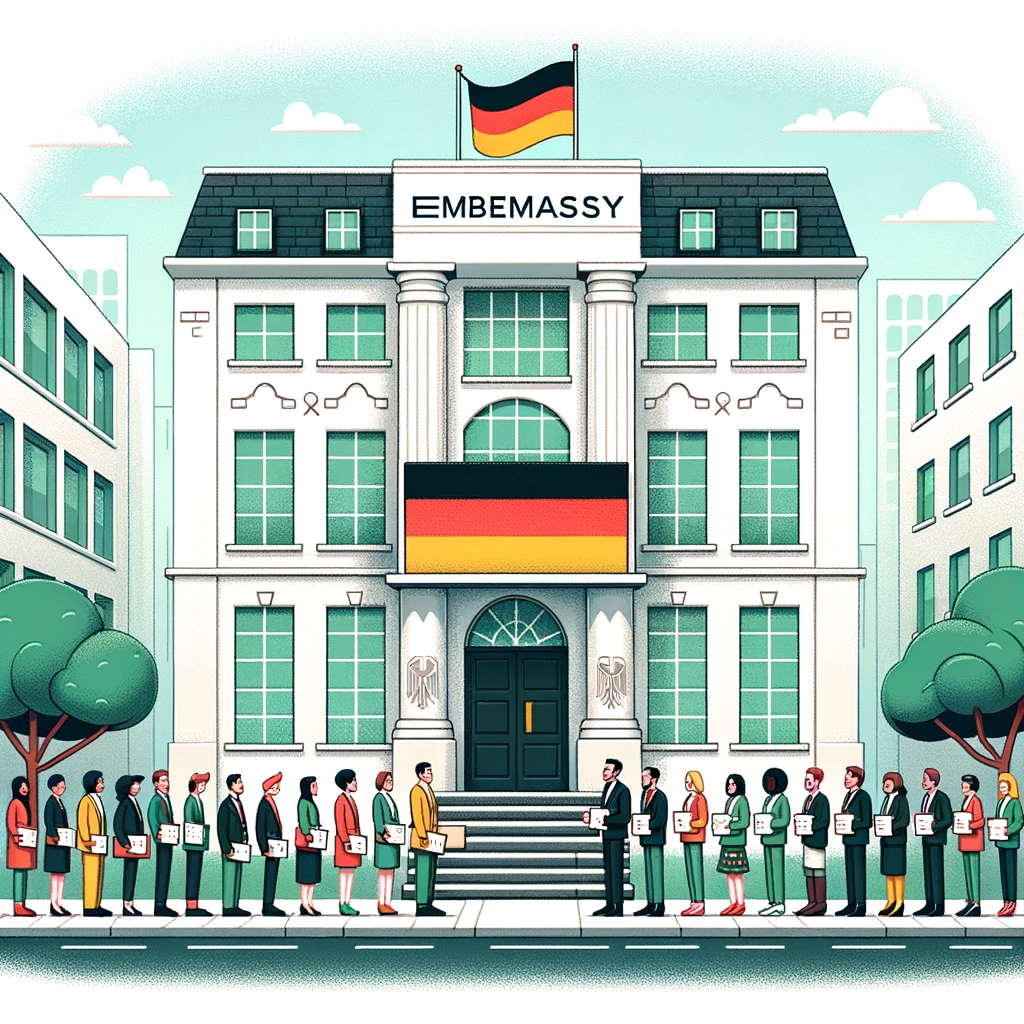
Requirements and Eligibility
Each visa type has its own set of eligibility criteria. Typically, these may include proof of financial stability, health insurance, relevant qualifications, and sometimes a job offer from a German employer. It’s crucial to check the specific requirements for the visa type you’re interested in.
Application Process
The visa application process involves several steps, starting with scheduling an appointment at the German embassy or consulate in your home country. You’ll need to fill out the application form, gather the necessary documents, and attend a visa interview. Processing times and fees vary, so it’s advisable to start the application well in advance of your planned move.
A Closer Look at Working in Germany in 2023 in particular
The dynamics of working in Germany have seen significant changes over the years, with 2023 being no exception. The “Make it in Germany” initiative continues to play a vital role in attracting and supporting foreign professionals. As you plan to work in Germany, understanding the evolving landscape in 2023 will prepare you for a smoother transition.
Language Barrier
Language remains a fundamental aspect of integrating into the German work culture. While many Germans speak English, a solid grasp of the German language is highly beneficial. It not only eases daily communication but also enhances your job prospects, especially in smaller cities and towns.
Digitalization
The digital transformation in Germany has accelerated, impacting the job market significantly. There’s a growing demand for IT and digital professionals. Additionally, digitalization has facilitated remote working, opening up online jobs in Germany for foreigners. This digital shift also means that job seekers can leverage online platforms to network and search for job opportunities.
Recognition of Foreign Qualifications
The process of getting foreign qualifications recognized in Germany is critical for a successful career transition. The country has a structured system to evaluate and recognize foreign qualifications, especially for regulated professions. The “Make it in Germany 2023” initiative provides comprehensive information and support to help foreigners navigate this process.
Support for Expats
Germany has ramped up its support for expatriates, offering various integration courses and official platforms to aid in the transition. The “Make it in Germany” initiative is a valuable resource providing information on living, working, and integrating into the German society.
![How to Work in Germany [2023]?](https://bytebricks.ai/wp-content/uploads/2023/10/Work-in-Germany-abstract.png)
This Guide in 2023
This is v1.0 of the guide. We will keep updating this guide on regular basis in order for it to be a reference for everyone interested in working in Germany. This article uses several sources listed below. This article mentions several trademarks that belong to their respective owners.

